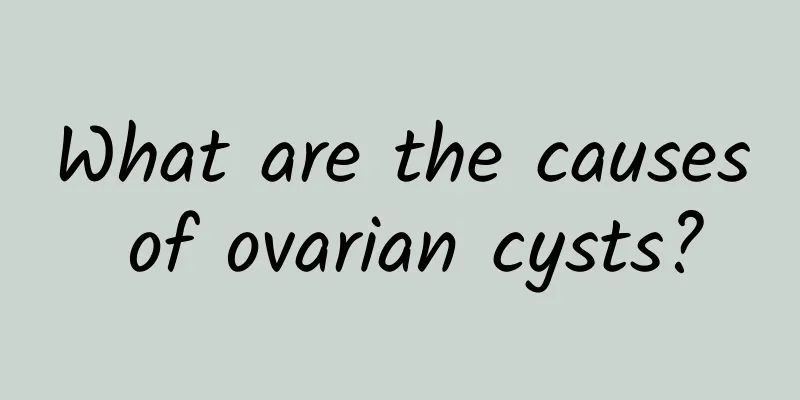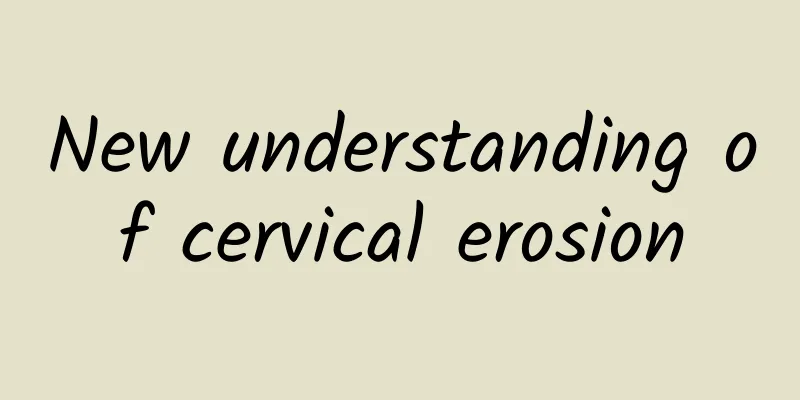Can I get pregnant with moderate cervical erosion?

|
Pregnancy is possible with moderate cervical erosion, but the risk needs to be assessed and appropriate measures taken according to the specific situation. Cervical erosion itself does not directly affect pregnancy, but it may be accompanied by inflammation or other problems, which require timely treatment and conditioning. 1. Causes of cervical erosion Cervical erosion is a common gynecological problem that may be related to the following factors: Physiological factors: Increased estrogen levels may cause the cervical columnar epithelium to migrate outward, forming erosive changes. Inflammatory infection: Chronic cervicitis, bacterial or viral infections such as HPV may cause or aggravate erosions. External stimulation: Frequent sexual intercourse, poor hygiene habits, or the use of irritating drugs may damage the cervix. Pathological factors: Some cervical erosions may be related to cervical precancerous lesions and need to be excluded through examination. 2. The impact of moderate cervical erosion on pregnancy Moderate cervical erosion usually does not directly cause infertility, but it may increase the risk of: Spread of inflammation: Cervical inflammation may spread to the uterus and affect the function of the endometrium or fallopian tubes. Abnormal secretion: Cervical erosion may cause increased secretion and affect the passage of sperm through the cervix. Pregnancy complications: Untreated cervical erosion may increase the risk of miscarriage or premature birth. 3. Treatment methods and suggestions For moderate cervical erosion, the following measures are recommended: Drug treatment: Use antibiotics such as metronidazole to treat infection, or apply local anti-inflammatory drugs such as Baofukang suppositories. Physical therapy: Laser, freezing or microwave therapy can effectively repair cervical tissue, but it must be performed under the guidance of a doctor. Surgical treatment: For severe cases, cervical conization or LEEP knife treatment can be considered. Lifestyle conditioning: Keep the vulva clean, avoid excessive cleaning or the use of irritating products; eat more foods rich in vitamins C and E, such as citrus fruits and nuts. Regular check-ups: Perform cervical cytology, TCT, and HPV testing every six months to monitor changes in the condition. Patients with moderate cervical erosion can get pregnant, but they need to receive treatment and conditioning under the guidance of a doctor. Through medication, physical therapy or surgical intervention, the condition can be effectively controlled and the risk of pregnancy can be reduced. At the same time, maintaining good living habits and regular check-ups are the key to preventing recurrence. If you plan to get pregnant, it is recommended to have a comprehensive gynecological examination before pregnancy to ensure the health of the cervix and prepare for a smooth pregnancy. |
<<: Acute adnexitis examination: enlarged adnex
>>: What symptoms does a Bartholin's gland cyst cause?
Recommend
Preparations before painless abortion surgery
Painless abortion is a popular abortion procedure...
What should I do if I have cervical erosion and polyps after childbirth?
What should I do if I have cervical erosion and p...
What to eat when you are injured in sports? 5 secret recipes to learn quickly
"Nutritionist, I want to lose weight!" ...
What are the consequences of a woman's hydatidiform mole?
Hydatidiform mole is a pregnancy-related disease ...
Bloating, frequent farting... irritable bowel syndrome is causing trouble! Low-calorie pineapple, grapefruit, and kiwifruit: 3 enzymes to reduce sensitivity
The high calorie count of Mid-Autumn barbecue is ...
Let's learn about the prevention of uterine fibroids
Experts remind that uterine fibroids should be de...
What are the main symptoms of ovarian cysts?
It is said that the most common ovarian cyst in w...
Summer light meal fun! Refreshing Garden Vegetable Salad
For a light summer meal, try a refreshing garden ...
Can early endometrial thickening be cured?
If we can be more careful in our daily lives and ...
The dangers of ovarian cyst torsion during pregnancy
Ovarian cyst torsion during pregnancy can cause s...
What is the difference between induced abortion and abortion?
Both induced labor and artificial abortion are me...
What causes congenital absence of vagina?
What causes congenital absence of vagina? Patient...
Chef Oliver eats kelp to lose weight! Alginate increases satiety
In addition to cooking delicious food, the famous...
Prevention of pelvic inflammatory disease is urgent
Clinically, pelvic inflammatory disease can be di...
What medicine to take to treat Trichomonas vaginitis
Trichomonas vaginitis can be treated with traditi...









